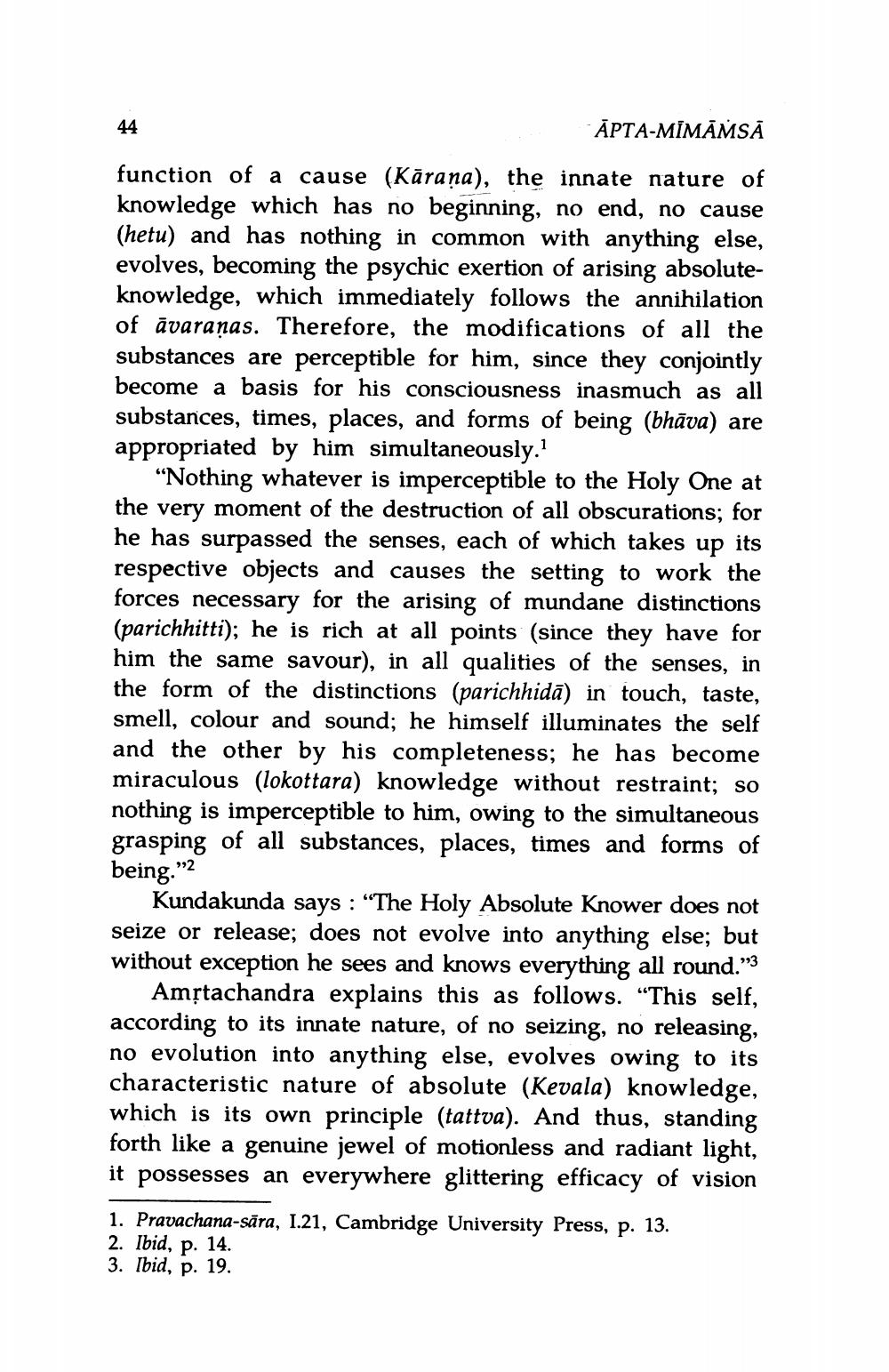________________
ĀPTA-MĪMĀMSĀ
function of a cause (Kāraṇa), the innate nature of knowledge which has no beginning, no end, no cause (hetu) and has nothing in common with anything else, evolves, becoming the psychic exertion of arising absoluteknowledge, which immediately follows the annihilation of avaraṇas. Therefore, the modifications of all the substances are perceptible for him, since they conjointly become a basis for his consciousness inasmuch as all substances, times, places, and forms of being (bhāva) are appropriated by him simultaneously.1
44
"Nothing whatever is imperceptible to the Holy One at the very moment of the destruction of all obscurations; for he has surpassed the senses, each of which takes up its respective objects and causes the setting to work the forces necessary for the arising of mundane distinctions (parichhitti); he is rich at all points (since they have for him the same savour), in all qualities of the senses, in the form of the distinctions (parichhidā) in touch, taste, smell, colour and sound; he himself illuminates the self and the other by his completeness; he has become miraculous (lokottara) knowledge without restraint; so nothing is imperceptible to him, owing to the simultaneous grasping of all substances, places, times and forms of being."2
Kundakunda says: "The Holy Absolute Knower does not seize or release; does not evolve into anything else; but without exception he sees and knows everything all round."3 Amṛtachandra explains this as follows. "This self, according to its innate nature, of no seizing, no releasing, no evolution into anything else, evolves owing to its characteristic nature of absolute (Kevala) knowledge, which is its own principle (tattva). And thus, standing forth like a genuine jewel of motionless and radiant light, it possesses an everywhere glittering efficacy of vision
1. Pravachana-sāra, I.21, Cambridge University Press, p. 13. 2. Ibid, p. 14.
3. Ibid, p. 19.




